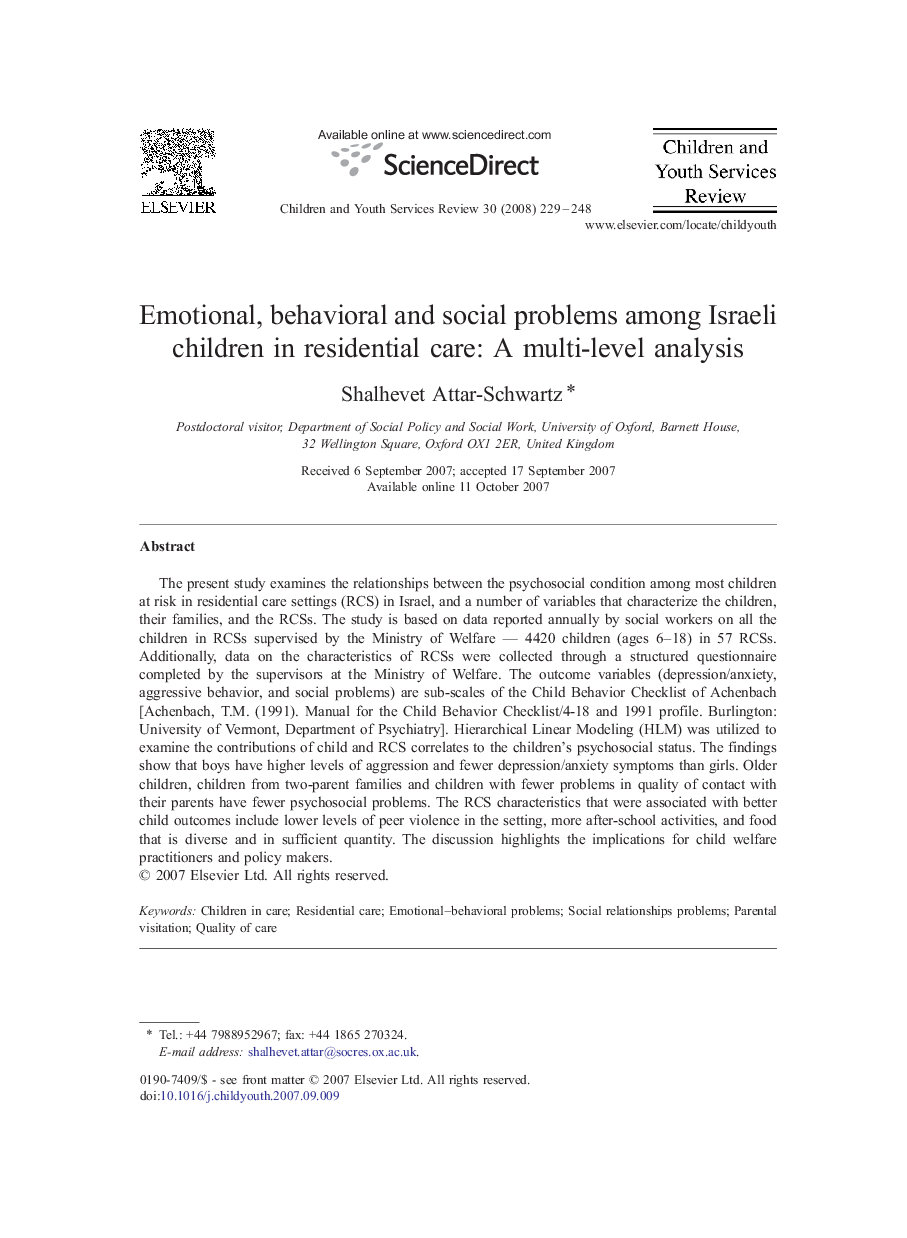| Article ID | Journal | Published Year | Pages | File Type |
|---|---|---|---|---|
| 346996 | Children and Youth Services Review | 2008 | 20 Pages |
The present study examines the relationships between the psychosocial condition among most children at risk in residential care settings (RCS) in Israel, and a number of variables that characterize the children, their families, and the RCSs. The study is based on data reported annually by social workers on all the children in RCSs supervised by the Ministry of Welfare — 4420 children (ages 6–18) in 57 RCSs. Additionally, data on the characteristics of RCSs were collected through a structured questionnaire completed by the supervisors at the Ministry of Welfare. The outcome variables (depression/anxiety, aggressive behavior, and social problems) are sub-scales of the Child Behavior Checklist of Achenbach [Achenbach, T.M. (1991). Manual for the Child Behavior Checklist/4-18 and 1991 profile. Burlington: University of Vermont, Department of Psychiatry]. Hierarchical Linear Modeling (HLM) was utilized to examine the contributions of child and RCS correlates to the children's psychosocial status. The findings show that boys have higher levels of aggression and fewer depression/anxiety symptoms than girls. Older children, children from two-parent families and children with fewer problems in quality of contact with their parents have fewer psychosocial problems. The RCS characteristics that were associated with better child outcomes include lower levels of peer violence in the setting, more after-school activities, and food that is diverse and in sufficient quantity. The discussion highlights the implications for child welfare practitioners and policy makers.
